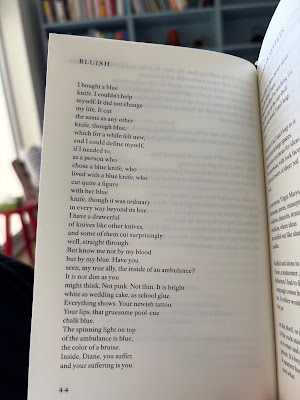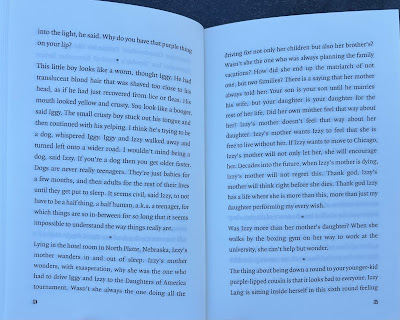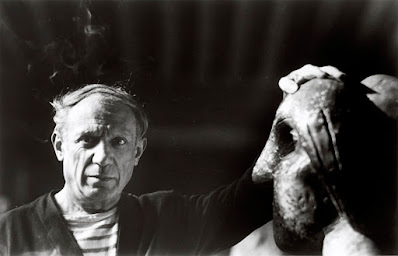Quote lifted from my Dad's MA thesis: "The Gift and Labour of Gratitude".
Words, images and documents by or collected by Jessica Schouela
Monday, 27 October 2025
Tuesday, 14 October 2025
Jacqueline Rose, Mothers
Some reference notes and a passage:
- Perfection and mother’s ambivalence - failure should not be seen as catastrophic but necessary and normal
- Winnicott and healthy hating
- Winnicott and the false self
- Mothers as scapegoat
- Bettelheim and hating/blaming mothers for child’s destruction
- Birth/labour akin to war
- Clytemnestra pleading with her son Orestes to save her life by exposing her breast - an effort to remind him of their intimacy and her having fed and sustained him - which does not work and he kills her
- Cultural and psychoanalytic ignoring of the mother’s erotic pleasure breastfeeding her baby (and the few sources that do address it)
- Erasure of mothers’ sexuality and the idealisation of mothers
- How can/should a mother bear her daughter’s protests without shattering? How can mothers really hear and listen to their children?
- Hoping not that your child is happy but that they develop a rich, independent life
- Elena Ferrante and mothers with blurred margins
Thursday, 25 September 2025
Sunday, 10 August 2025
Selected passages from Sylvia Plath's Three Women
It is a world of snow now. I am not at home.
How white these sheets are. The faces have no features.
They are bald and impossible, like the faces of my children,
Those little sick ones that elude my arms.
Other children do not touch me: they are terrible.
They have too many colors, too much life. They are not quiet,
Quiet, like the little emptinesses I carry.
...
I did not look. But still the face was there,
The face of the unborn one that loved its perfections,
The face of the dead one that could only be perfect
In its easy peace, could only keep holy so.
And then there were other faces. The faces of nations,
Governments, parliaments, societies,
The faceless faces of important men.
---
FIRST VOICE:
Who is he, this blue, furious boy,
Shiny and strange, as if he had hurtled from a star?
He is looking so angrily!
He flew into the room, a shriek at his heel.
The blue color pales. He is human after all.
A red lotus opens in its bowl of blood;
They are stitching me up with silk, as if I were a material.
What did my fingers do before they held him?
What did my heart do, with its love?
I have never seen a thing so clear.
His lids are like the lilac-flower
And soft as a moth, his breath.
I shall not let go.
There is no guile or warp in him. May he keep so.
---
FIRST VOICE:
How long can I be a wall, keeping the wind off?
How long can I be
Gentling the sun with the shade of my hand,
Intercepting the blue bolts of a cold moon?
The voices of loneliness, the voices of sorrow
Lap at my back ineluctably.
How shall it soften them, this little lullaby?
How long can I be a wall around my green property?
How long can my hands
Be a bandage to his hurt, and my words
Bright birds in the sky, consoling, consoling?
It is a terrible thing
To be so open: it is as if my heart
Put on a face and walked into the world.
Tuesday, 5 August 2025
Never Done, Christine Smallwood (Harper’s, April 2018)
Tuesday, 15 July 2025
D. W. Winnicott, Primary Maternal Preoccupation (1956)
woman has a strong male identification she finds this part of her mothering function most difficult to achieve, and repressed penis envy leaves but little room for primary maternal preoccupation."
Monday, 7 July 2025
Sunday, 6 July 2025
Saturday, 28 June 2025
Wednesday, 25 June 2025
Monday, 26 May 2025
Joan Raphael-Leff, Absolute Hospitality and the Imagined Baby
On the paradox of pregnancy: "Novel and heightened sensory experience comes to the fore, challenging her complacent embodiment. As long as two beings continue to occupy one body, personal boundaries shift and blur across her ballooning shape-changing exterior and the unfamiliarity of her over-stimulated, increasingly constricted interior. She is no longer herself. Inner privacy is violated by a constant presence. Her private sexual activity is revealed unbidden. Ordinary social interchange alters as teenaged boys smirk and even strangers feel free to touch her laden belly. Furthermore, for many months, the pregnant woman not only“contains” but serves as both hostess and hostage to one who extracts nourishment from her internal resources and spews waste products or disposal through her own bodily system."
On the importance of perinatal ambivalence: "Likewise, awareness of her own healthy ambivalence toward the inordinate demands of hospitality, which leads her to fluctuate between feelings of acceptance and enjoyment, annoyance at disrupted sleep and sharing her body with a baby, who, however lovingly anticipated, disconcertingly squirms, kicks and hiccups inside her."
[I read and blog this at 37+6 weeks pregnant, 2:30am.]
Raphael-Leff, J. (2020). Absolute Hospitality and the Imagined Baby. The Psychoanalytic Study of the Child, 73(1), 230–239. https://doi.org/10.1080/00797308.2020.1690906


















































